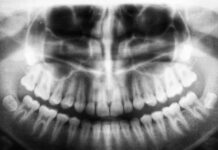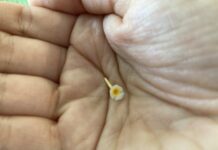It is known that high blood cholesterol or more specifically elevated LDL cholesterol levels of so-called “bad” cholesterol are considered to be one of the main predisposing factors for causing coronary heart disease.
The purpose of the following dietary guidelines is to reduce the levels of total cholesterol, but also the “bad” (LDL) cholesterol to the desired limits, while maintaining a nutritionally adequate program.
From now on, our diet needs to be low in cholesterol-raising foods and rich in cholesterol-lowering foods.
Foods that raise cholesterol levels
- Foods that cause lipids to rise in your blood are those that contain large amounts of saturated fat, which is usually of animal origin and is found in the following:
- Butter, animal fat, mayonnaise, sour cream and various mayonnaise-based salad dressings.
- Offal (kidney, liver, brain) and fatty meats, bacon, sausage and charcuterie. At this point an important clarification is needed: although choosing lean meats such as tenderloin and beef fillet is right, these pieces of meat are low in saturated fat and not lean as there is no lean red meat. For that reason, it is recommended to eat 1 time/15 days of red meat from the above parts and 1-2 times/week of skinless poultry.
- Egg yolk is high in cholesterol, so it should be avoided, but egg whites can be eaten freely. 2-3 egg yolks per week are recommended, this amount seems large to most, but it should be emphasized that this amount also includes yolks in cooking and confectionery, so be careful!
- Whole milk & yogurt should be avoided, but you should fearlessly consume low-fat dairy products, i.e. 0-1% milk and 1-2% yogurt, which are rich in calcium and low in saturated fat.
- But fatty cheeses, even those that are considered low in saturated fat should be consumed in moderation and not freely, as they contain even small amounts of saturated fat.
- Fried foods (e.g. potatoes, chips) as well as browning in cooking should also be avoided.
- Sweet desserts, pastes, ice creams, chocolates, croissants and general pastries with eggs and butter have a negative effect on your health. On the contrary, you choose fasting sweets such as pastel (unless of course you have increased triglycerides at the same time, so it would be good to avoid them as well), jams, mastic, etc.
Foods that lower cholesterol levels
Most people with high cholesterol focus on reducing it by reducing the amount of saturated fat and cholesterol in their diet. Few realize that in the fight against hypercholesterolemia there are also valuable nutritional allies that help reduce elevated blood lipids. The following foods are considered allies in the fight against hypercholesterolemia:
- fatty fish due to the omega-3 fatty acids they contain. Choose fatty fish, even you who pay attention to your calories and silhouette. We must point out that even the fattest fish, such as salmon, contain the same amount of fat as skinless chicken leg, and the quality of the fat is excellent and therefore there is no excuse not to include it in our weekly diet 2-3 times the week.
- Olive oil, which reduces total and “bad” cholesterol, without adversely affecting the “good” cholesterol. Of course, in order to optimize the benefits of using olive oil, we should consume it in its most unprocessed form, i.e. not in browning and frying, but in our salads and with the addition at the end of cooking.
- The latest in the diet quiver for hypercholesterolemia are phytosterols and phytostanols found in sesame, sunflower seeds, peanuts, bran and properly fortified margarines.
- Soluble fiber also helps reduce hypercholesterolemia, so eating oat products such as porridge and nuts should be an integral part of the diet of people with hypercholesterolemia.
- Alcohol and wine in moderation, due to the antioxidants they contain
Proper nutrition is an important ally in the fight against hypercholesterolemia, whether we take medication or not. The incorporation of permanent good eating habits in our daily life is imperative, when our hypercholesterolemia “knocks on the door”!
Advises Ms. Amalia Tsagari, Dietitian – Nutritionist, GNA KAT





